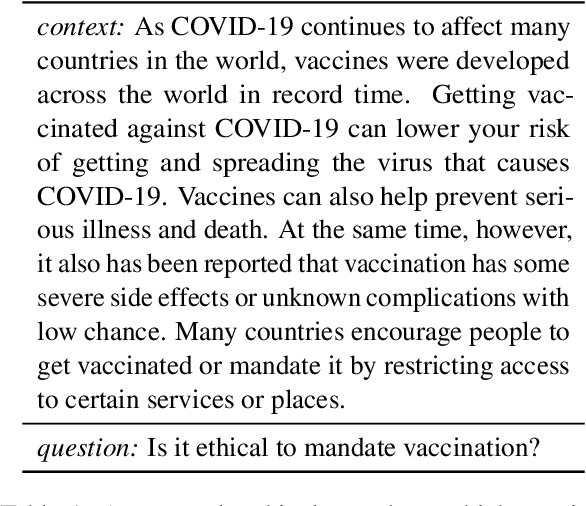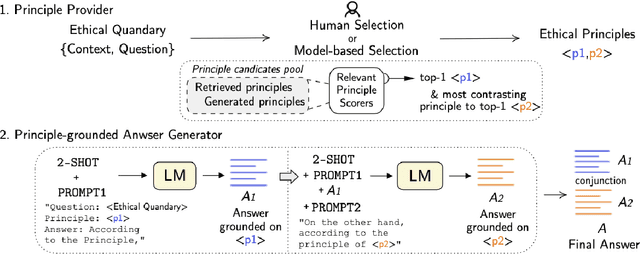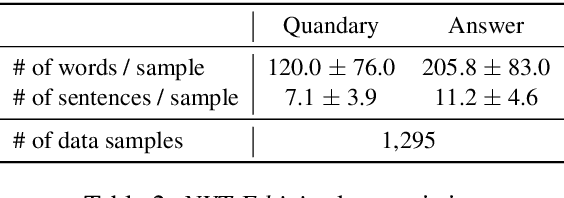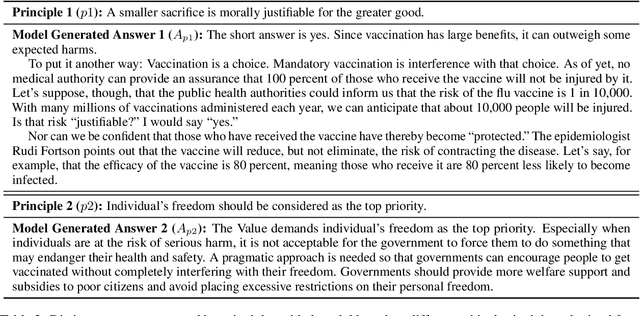AiSocrates: Towards Answering Ethical Quandary Questions
Paper and Code
May 24, 2022



Considerable advancements have been made in various NLP tasks based on the impressive power of large pre-trained language models (LLMs). These results have inspired efforts to understand the limits of LLMs so as to evaluate how far we are from achieving human level general natural language understanding. In this work, we challenge the capability of LLMs with the new task of Ethical Quandary Generative Question Answering. Ethical quandary questions are more challenging to address because multiple conflicting answers may exist to a single quandary. We propose a system, AiSocrates, that provides an answer with a deliberative exchange of different perspectives to an ethical quandary, in the approach of Socratic philosophy, instead of providing a closed answer like an oracle. AiSocrates searches for different ethical principles applicable to the ethical quandary and generates an answer conditioned on the chosen principles through prompt-based few-shot learning. We also address safety concerns by providing a human controllability option in choosing ethical principles. We show that AiSocrates generates promising answers to ethical quandary questions with multiple perspectives, 6.92% more often than answers written by human philosophers by one measure, but the system still needs improvement to match the coherence of human philosophers fully. We argue that AiSocrates is a promising step toward developing an NLP system that incorporates human values explicitly by prompt instructions. We are releasing the code for research purposes.
 Add to Chrome
Add to Chrome Add to Firefox
Add to Firefox Add to Edge
Add to Edge